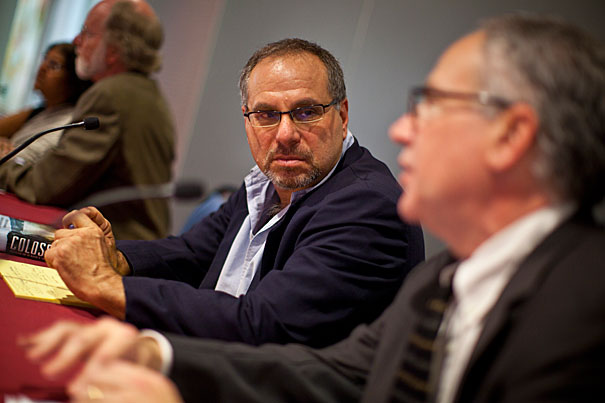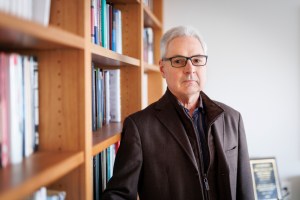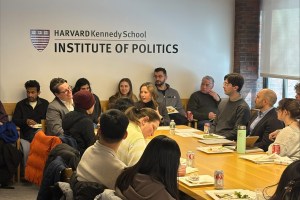Science & Tech
-

A ‘cocktail’ recipe for brain cells
Stem cell biologists discover how to regenerate type damaged in ALS, spinal cord injuries

-

When you do the math, humans still rule
Harvard’s Lauren Williams, a MacArthur ‘genius,’ joins international effort to challenge notions of AI supremacy
-

‘Imagination’
Less like a picture, more like a video game? Cognitive scientist explains how we ‘see’ what isn’t real.
-

Breaking chess’s rating stalemate
Ranking skill can be tricky when the best players draw more than they win, so a Harvard statistician invented a new method

-

How AI deepfakes have skirted revenge porn laws
Limits unclear when explicit images of individuals look real, but are digitally generated
-
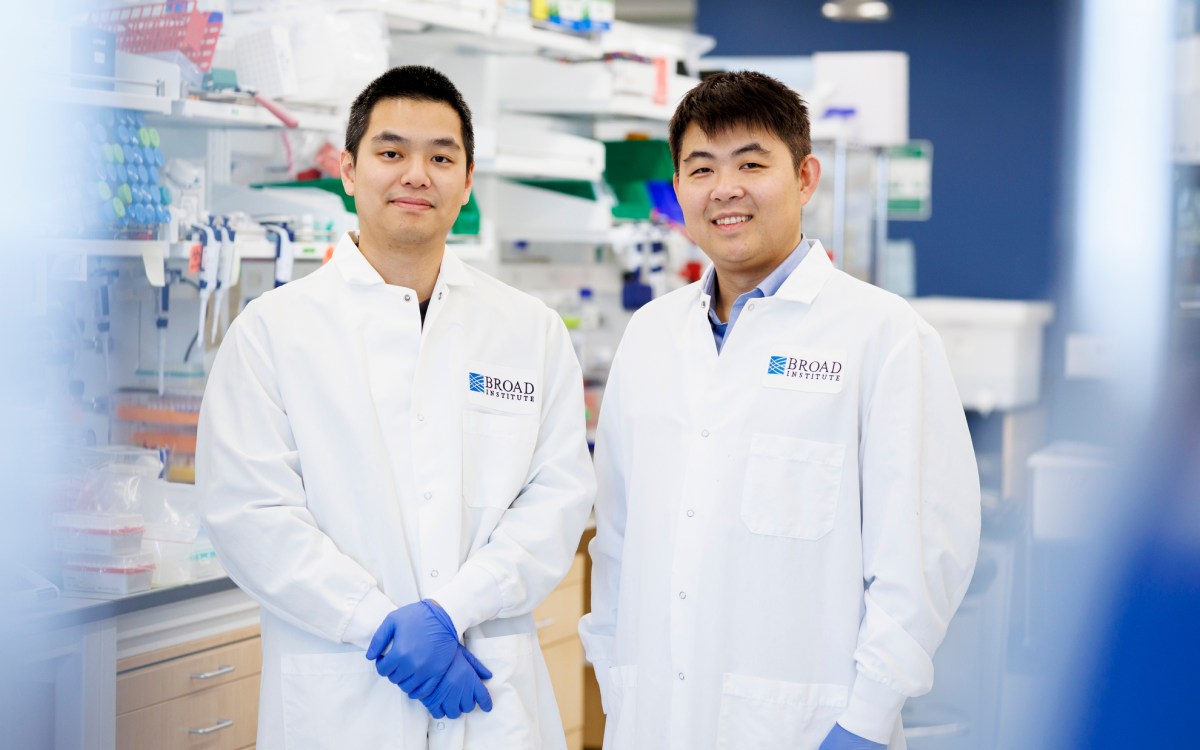
How did that cancer cell become drug-resistant?
Researchers find way to create microscopic archives of gene activity to gain insights into how, why changes happen

-
Sharp turns
Undergraduates in Engineering Sciences 51: “Computer-Aided Machine Design” spent a semester learning to design gadgets in SolidWorks, building candy-flinging catapults, and mastering the use of the soldering iron. Then came the final assignment: Transform a cordless power screwdriver into a functional all-terrain vehicle.
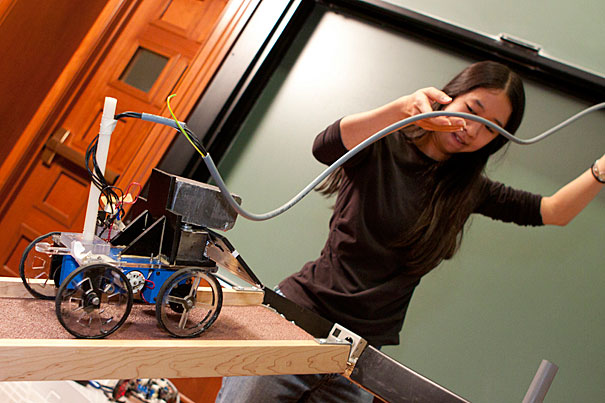
-
Oh, the humanity
Using digitized books as a “cultural genome,” a team of researchers from Harvard, Google, Encyclopaedia Britannica, and the American Heritage Dictionary, unveil a quantitative approach to centuries of trends.
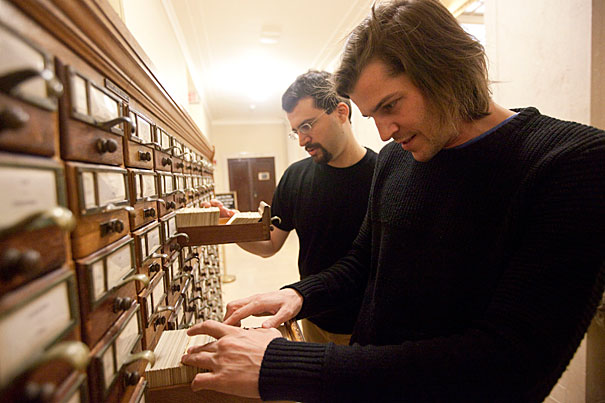
-
By the numbers
Thanks to the digital revolution, Harvard is developing a legion of cyberspace fans in the world of social media.
-
Digital drive
Across the University, digitization is rapidly changing the nature of scholarship, opening doors to information and collaboration, and redefining research and education.
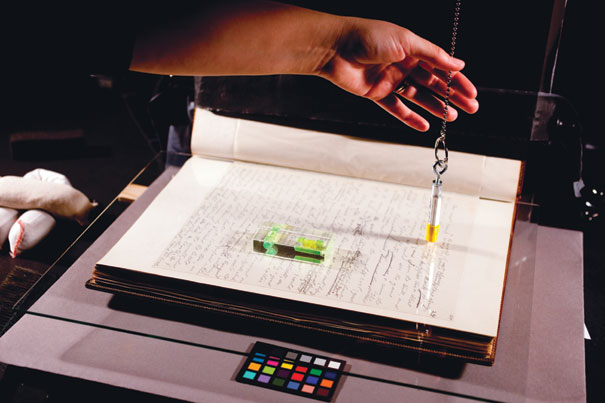
-
Nearer, better
Through analyzing the locations of authors of academic papers, researchers have determined that physical proximity of collaborators, especially between the first and last author, correlates with how widely the paper is cited.

-
Poor prospects
Small and midsize cities in poor countries will be among those that suffer most from climate change’s droughts, floods, landslides, and rising waters, an expert on the world’s urban poor said in a talk at Harvard’s Center for Population and Development Studies.
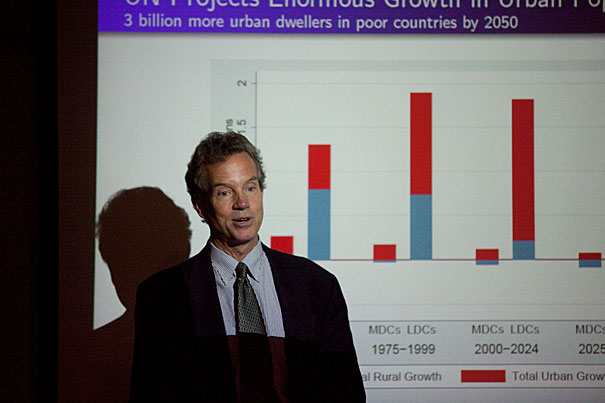
-
Squeezing life into patients
Engineers at Duke and Harvard universities have developed a “magnetic sponge” that after implantation into a patient can “squeeze” out drugs, cells, or other agents when passed over by a magnet.
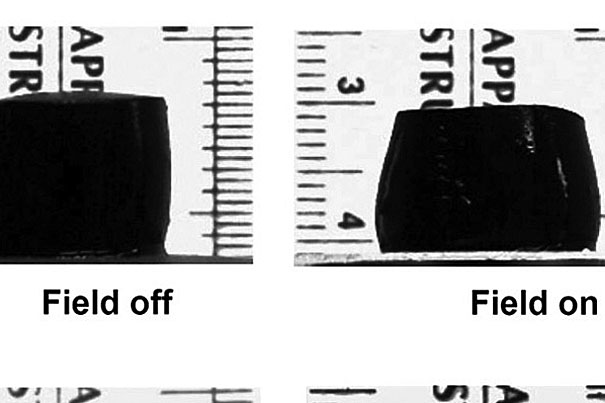
-
Like computer science, only cooler
More than 500 students in the introductory computer science course CS 50 descended on the Northwest Science Building for a music-thumping, popcorn-eating fair where students showed off their projects.
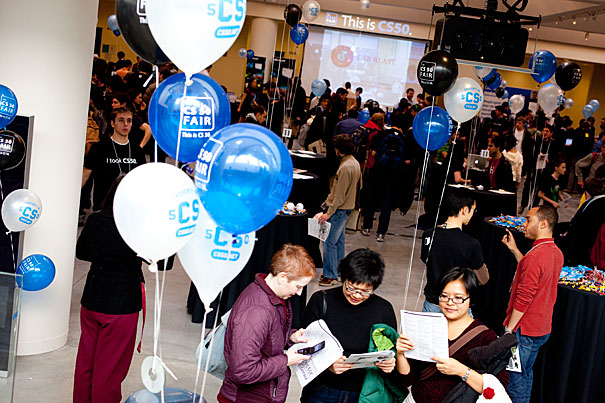
-
‘One-drop rule’ persists
Harvard psychologists have found that the centuries-old “one-drop rule” assigning minority status to mixed-race individuals appears to live on in our modern-day perception and categorization of people like Barack Obama, Tiger Woods, and Halle Berry.
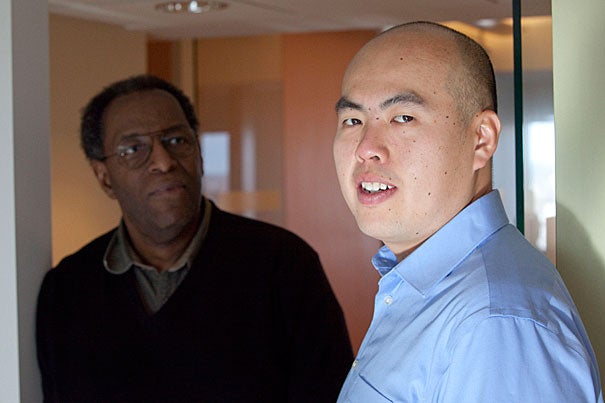
-
At last, the edible science fair
Illustrating the tenacious bond between science and cooking, students used physics, chemistry, and biology to manipulate recipes and create foods that stretch the imagination.
-
Caring for caring
The art and technology of care giving — undervalued now — “cuts to the quick” of our humanity. Caring — for others, for ourselves, even for things and places — is at the core of our humanity. But how to cope with its demands in a medical setting was the subject of a two-panel conference, sponsored by the Mahindra Humanities Center at Harvard.
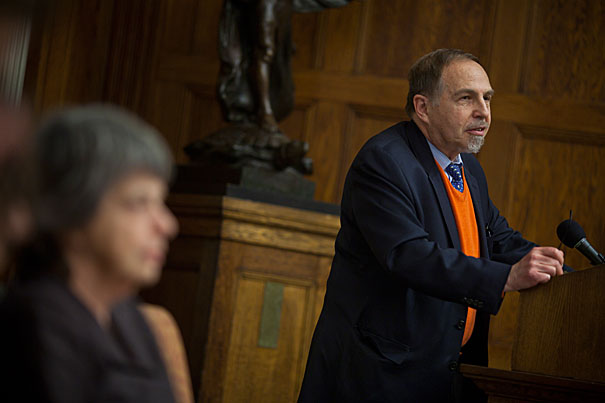
-
Of two minds
We resolve to exercise more and eat healthy, and then reach for a cupcake at the office holiday party. We pledge to put money away for retirement, but end up maxing out credit cards that charge 14 percent interest. According to Professor David Laibson, the reason for these struggles is that human beings are of two minds, one patient and one impatient.
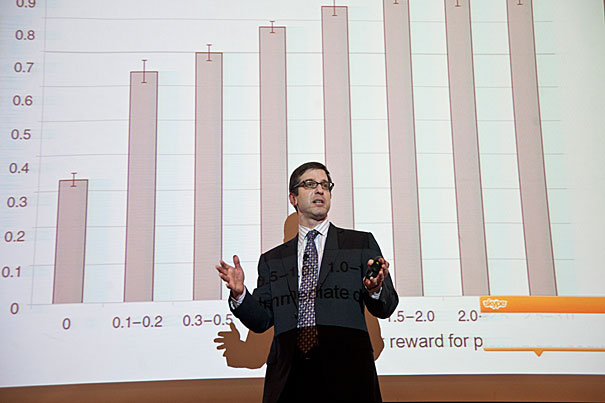
-
The EPA at 40
EPA Administrator Lisa Jackson said that strong Republican gains in November’s election do not mean there is a public mandate to roll back EPA protections.
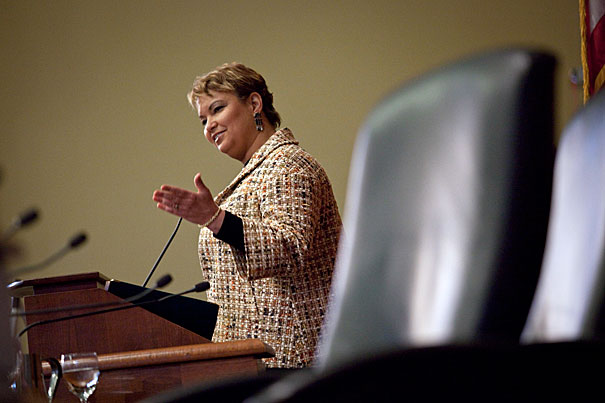
-
Ice sheet in peril? Gravity to the rescue
Gravity’s surprising effects when the Earth’s ice sheets melt can help to stabilize ones, such as those found in West Antarctica, that are grounded below sea level.
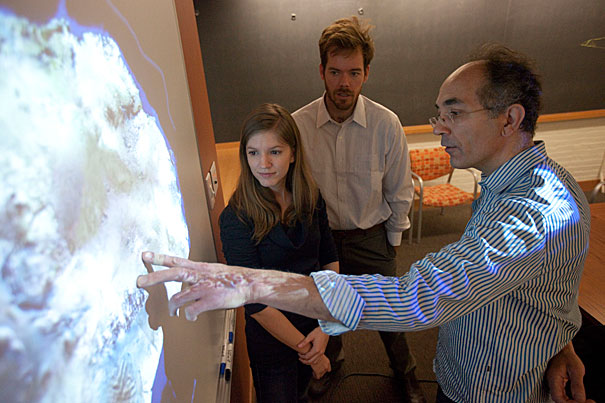
-
New facilities for Wyss Institute
Harvard’s Wyss Institute for Biologically Inspired Engineering officially opens new, expansive facilities in Boston and Cambridge to host its fast-growing enterprise.
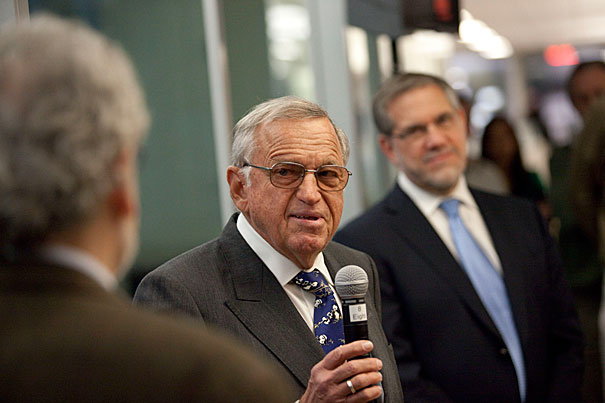
-
Keeping creature company
Rosado enjoys managing museum’s massive collection of amphibians
-
You are where you live
A Harvard School of Public Health associate professor examines the link between health and neighborhoods to see whether people’s residential landscapes matter.
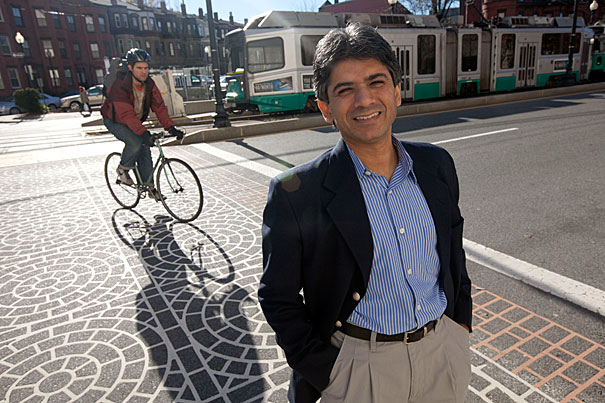
-
Getting genetic leg up on climate change
Harvard botanist Charles Davis is examining evolutionary relationships between species affected by climate change for clues to past and future changes.
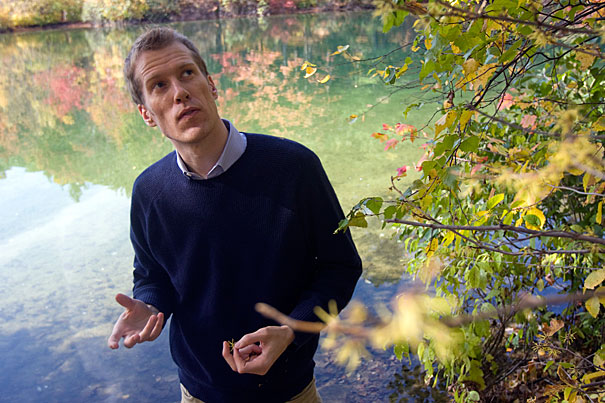
-
The looming water shortage
The head of Nestlé explored ways to address a looming worldwide water crisis during a discussion at the Harvard Kennedy School.
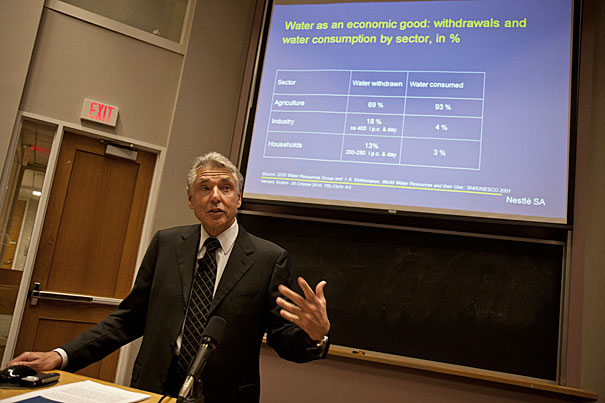
-
The search for China’s roots
Archaeologist Rowan Flad is seeking early traces of one of the world’s oldest civilizations.
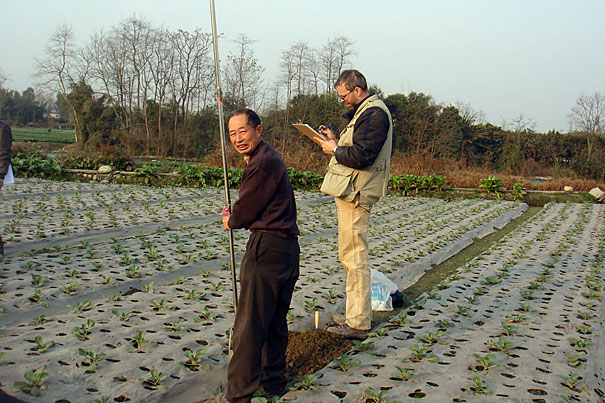
-
Change languages, shift responses
Study of bilingual speakers suggests that language use can help to shape preferences.
-
Race plays minor role in Facebook friendships
Race may not be as important as previously thought in determining who befriends whom, suggests a study of Facebook habits by sociologists from Harvard and UCLA.
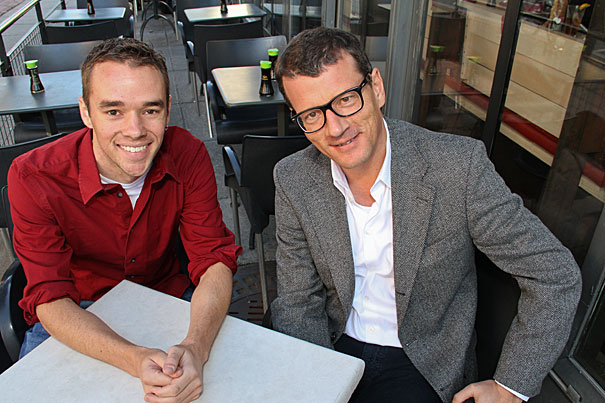
-
Termites as architects
The air exchange system inside termite mounds provides a natural example of how to harness intermittent winds.
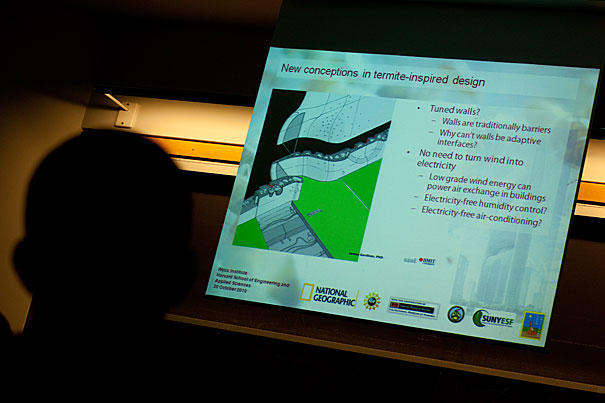
-
Microbes to the rescue
Study says microbes may consume far more gaseous waste from gulf oil spill than previously believed.
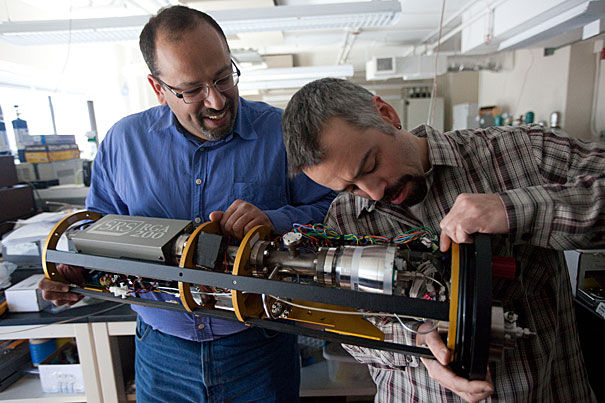
-
Gabrielse wins Lilienfeld Prize
Harvard Physics Professor Gerald Gabrielse was named the recipient of the 2011 Julius Edgar Lilienfeld Prize, awarded by the American Physical Society for outstanding contributions to physics.
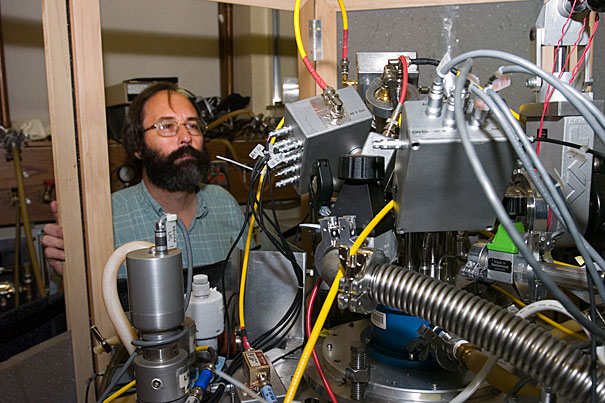
-
Building the cheapest car
An executive of the Indian conglomerate Tata described how the company promotes innovation, resulting in the creation of the world’s cheapest car, a $2,500, fuel-efficient four-seater.
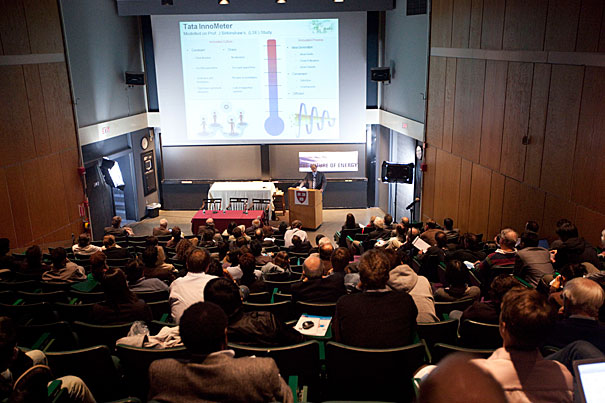
-
Sustaining the cities
An interdisciplinary Harvard working group on sustainable cities is in search of some organizational details, but is already certain of its urgent mission.
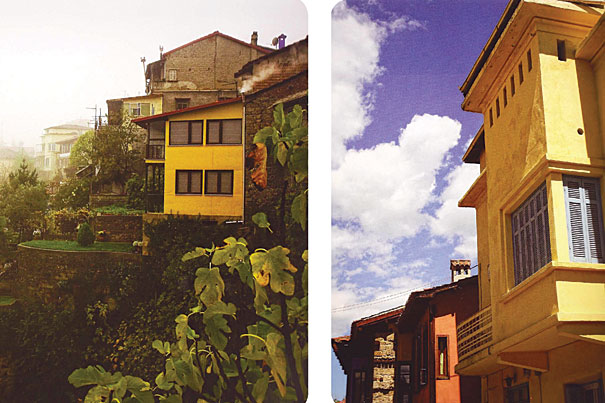
-
‘Breathtakingly awful’
With 8 million orphans living in institutions worldwide, an ongoing Harvard study highlights the devastating effect institutionalization has on children, providing support for a switch to foster care.
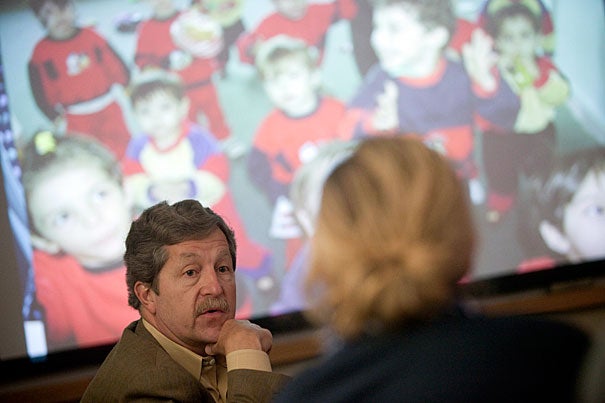
-
Simple beauties of math (yes, math)
Mathematics Professor Shing-Tung Yau tells how he discovered the Calabi-Yau manifold, a mysterious but important mathematical concept important in string theory.
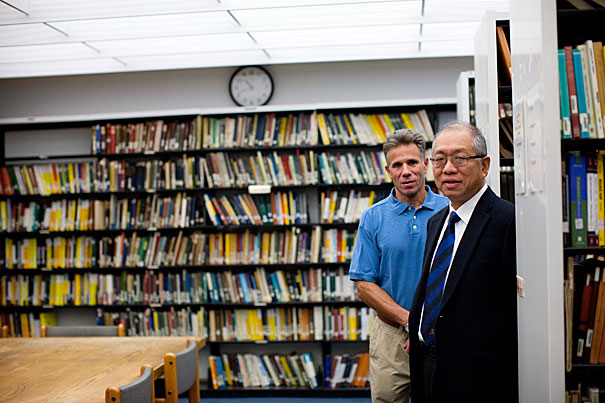
-
Doubting Thomas nation
Why aren’t you listening? Scientists discuss the difficulty of transferring scientific consensus to the public.
